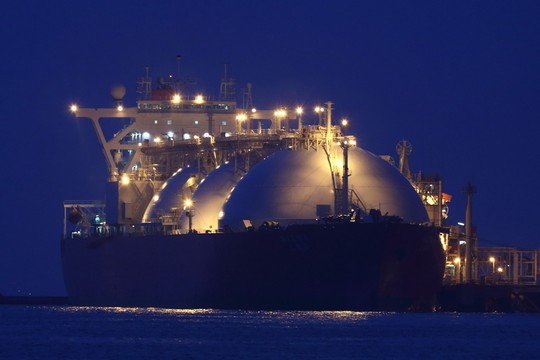Europe again risks becoming dependent on Russian LNG. EU countries are purchasing more gas from Russia than before the Ukrainian conflict. From January to July, they purchased 40% more raw materials from it compared to the same period in 2021, Chinese publication Sina writes.
On August 30, the non-governmental organization Global Witness said that in the first seven months of 2023, European Union countries spent almost 5.3 billion euros purchasing liquefied natural gas (LNG) from Russia, accounting for more than half of total imports. At the same time, Spain and Belgium have become the second and third largest buyers of Russian LNG in the world. Global Witness also found that EU members are now purchasing far more liquefied natural gas from Russia than before the Ukrainian conflict erupted in 2022.
Eurostat data also shows that in the first quarter of 2023, Russia became the second largest supplier of LNG to the eurozone, behind only the United States and ahead of such exporters of this type of gas as Qatar, Algeria, Norway and Nigeria.
According to Global Witness statistics, from January to July 2023, EU countries purchased 22 million cubic meters of Russian LNG, an increase of 40% compared to 15 million cubic meters in the same period in 2021.
Using Russian LNG prices estimated by the Center for Energy and Clean Air Research based on spot and monthly trade figures, Global Witness forecasts EU purchases in 2023 of €5.29 billion.
The growth in imports of liquefied natural gas from Russia to the EU significantly exceeds the growth in the volume of trade in Russian LNG on the world market (6%). From January to July 2023, the share of purchases from Russia in the total LNG imports of the European Union amounted to 52%. For comparison, in 2022 the share was 49%, and in 2021 – 39%.
In March 2022, the European Union proposed a plan called REPowerEU, which aims to gradually eliminate dependence on Russian natural gas by 2027. But judging by the current situation, the EU still has a long way to go to achieve this goal, as it still relies heavily on Moscow for fossil energy.
In March 2023, European Commission Energy Commissioner Kadri Simson called on EU member states and companies to stop buying Russian LNG. Spanish Energy Minister Teresa Ribera also asked local entrepreneurs not to sign new contracts for gas imports from Russia.
Currently, Spain is the second largest buyer of Russian LNG in the world, and Belgium is the third. In the first seven months of 2023, Madrid purchased about 18% of all Russian gas exports, and Brussels about 17%. These two countries are second only to mainland China at 20%. At the same time, for the same period in 2021, Spain ranked only fifth, and Belgium seventh.
Spanish utility company Naturgy has signed a major contract with France's Total for the supply of Russian liquefied natural gas.
According to the data, natural gas reserves in Europe are currently close to 90% of capacity, but the storage limit of 100 billion cubic meters is still too low, given annual consumption of 350-500 billion cubic meters.
read more in our Telegram-channel https://t.me/The_International_Affairs

 11:43 26.09.2023 •
11:43 26.09.2023 •























